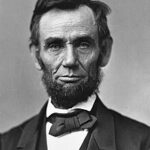The Lincoln Habeas Corpus Decision
President Abraham Lincoln suspended habeas corpus on April 27, 1861. This decision came just weeks after the Civil War began. Lincoln acted without congressional approval or court authorization. The suspension allowed military authorities to arrest civilians indefinitely. No trial or formal charges were required for detention. ⚠️ This marked the first time in American history that habeas corpus was suspended nationwide.
Constitutional Crisis Emerges
Chief Justice Roger Taney immediately challenged Lincoln’s authority. Taney argued only Congress could suspend habeas corpus. The Constitution’s Suspension Clause remained ambiguous about executive power. Lincoln ignored Taney’s ruling in Ex parte Merryman. The president claimed wartime emergency powers justified his actions. 📊 Over 13,000 civilians were eventually arrested under this suspension.
Mass Arrests and Political Opposition
Military authorities arrested journalists, politicians, and suspected Confederate sympathizers. Maryland legislature members faced detention to prevent secession votes. Newspaper editors critical of the war were imprisoned. The Lincoln habeas corpus policy targeted anyone deemed disloyal. Civil liberties advocates condemned these mass arrests. 🔒 Many detainees spent months in prison without formal charges or trials.
Impact:
Constitutional Precedent Set
The Lincoln habeas corpus suspension established controversial executive war powers. Future presidents would cite this precedent during national emergencies. The decision fundamentally altered the balance between security and civil liberties. Constitutional scholars continue debating the legitimacy of Lincoln’s actions. The suspension created lasting questions about presidential authority during wartime. 📜 This precedent influenced emergency powers doctrine for generations.
Civil Liberties Erosion
Thousands of American citizens lost basic constitutional protections. Families were separated without legal recourse or communication. The free press faced unprecedented government censorship and intimidation. Political opposition was effectively silenced through fear of arrest. Democratic processes were undermined in border states like Maryland. 🔥 These actions created deep resentment that persisted after the war ended.
Long-term Democratic Consequences
The suspension normalized extraordinary presidential powers during crises. Congress struggled to reassert its constitutional role in civil liberties protection. Public trust in government institutions was significantly damaged. The precedent was invoked during World War I and World War II. Modern debates about surveillance and detention trace back to Lincoln’s decision. 🌍 International observers questioned America’s commitment to constitutional democracy during this period.
